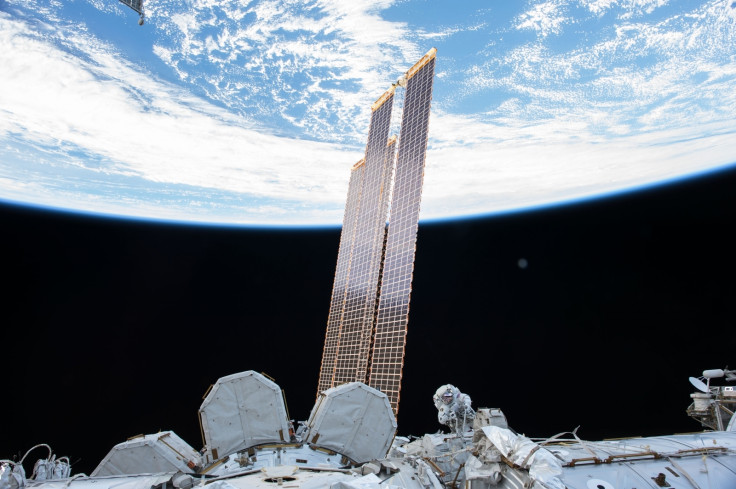Russia sent a surprise to the ISS – a mysterious sensor – and no one knows what it does
The unmanned Russian spacecraft MS-07's main mission was to carry supplies to the space station.

Last week, the International Space Station (ISS) received new supplies, which was delivered by the unmanned Russian spacecraft MS-07. However, apart from the expected cargo, the spacecraft also delivered a surprise payload — a mysterious sensor — which some experts reportedly believe could be linked to a controversial military endeavour.
Although MS-07 was scheduled to take off on 12 October, an unexplained issue resulted in the spacecraft's launch being scrubbed at the last second. The Russian government refrained from providing any statement on what caused the launch to be scrubbed. However, the spacecraft blasted off into space two days after and docked at the ISS on 16 October.
The Russian spacecraft also reportedly carried a small data-relay satellite and a tiny robot, which is allegedly part of a Russian firm's social media campaign. However, there appears to be little to no information from the Russian government about the spacecraft's most interesting cargo — the mysterious sensor.
The Russian government's silence on the sensor has raised suspicions, an unnamed Nasa official told Popular Mechanics.
"The fact that they are not discussing it is unusual, and maybe it's a test of some military-related sensor of some kind," independent space expert Jonathan McDowell, told Motherboard. "I think the appropriate reaction is 'mild curiosity,' rather than 'worry'," he added.
Is Russia prepping for space war? 3 mystery satellites reactivated but no one knows what they can do
Motherboard reported that space expert Anatoly Zak was the first to spot the sensor in official photos provided by the Russian firm RKK Energia, which manufactured MS-07. Russian officials reportedly declined to comment on the sensor's purpose, only revealing to Zak that the machine was part of a "one-time scientific experiment".
Motherboard cited an anonymous Russian space tech expert as saying that the sensor could likely be linked to "proximity operations" — which essentially involve manoeuvring two or more satellites close to each other, presumably for spying purposes.
Both US and China have recently reportedly launched specialised spacecraft, the sole purpose being to get close to other spacecraft to perform repairs or even tamper and/or destroy them. The US recently created a brand new three-star general position for a deputy of staff for space operations. The US Air force is also increasing focus on boosting its space divisions.
Although it still remains unclear whether Russia's sensor has any military applications, the move indicates the acceleration of space tech and likely hints at a fast approaching era of space warfare.






